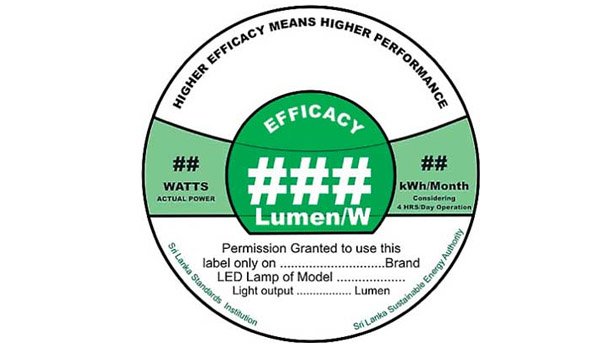“We have already got the approval to implement minimum energy performance standards (MEPS) for LED lights and within the next couple of weeks the products will come into the market with the MEPS labelling. The customers will be able to make purchases purely by choosing the products with the green MEPS logo,” Sri Lanka Sustainable Energy Authority (SEA) Deputy Director General (Strategy) Harsha Wickramesinghe told the Daily FT.
The main hindrances to growth of efficient electric appliances market in Sri Lanka include not having right standards enforced and the cost factor. Most of the products in the market at present do not deliver the quality performance they boast of, thereby misleading the consumers.
Thereby, he explained that introducing MEPS was important as it could be used as a stepping stone to introduce energy labelling.
Noting that there is a huge variety of LED products in the market he stated it important to introduce MEPS to create a benchmark.
The authority expects to introduce MEPS for five common household appliances such as refrigerators, LED lights, ceiling fans, television and washing machines to control low energy efficient appliances in the market.
Wickramasinghe pointed out that energy labelling enables consumer to identify consumption levels and efficiency rating, while it also helps the economy save a significant amount of electricity essentially contributing to the revenue of the Government.
However, he noted that evaluation process of these appliances was a huge challenge as there is an enormous product variety now, compared to a period a decade ago.
Pointing that is very costly and expensive to test these appliances he said: “If we introduce the labelling as a mandatory scheme, then the product variety would be reduce as well, because it even costs the equipment vendors a tangible amount to get these things tested. So, they will reduce their product variety when the scheme is available on a mandatory basis, leaving the best of their products for the consumers,” he added.
He also added that it was very difficult to garner the human and technical resources and to convince the decision makers and get an appliance labelling scheme passed through the system.
(By Charumini de Silva - ft.lk)






